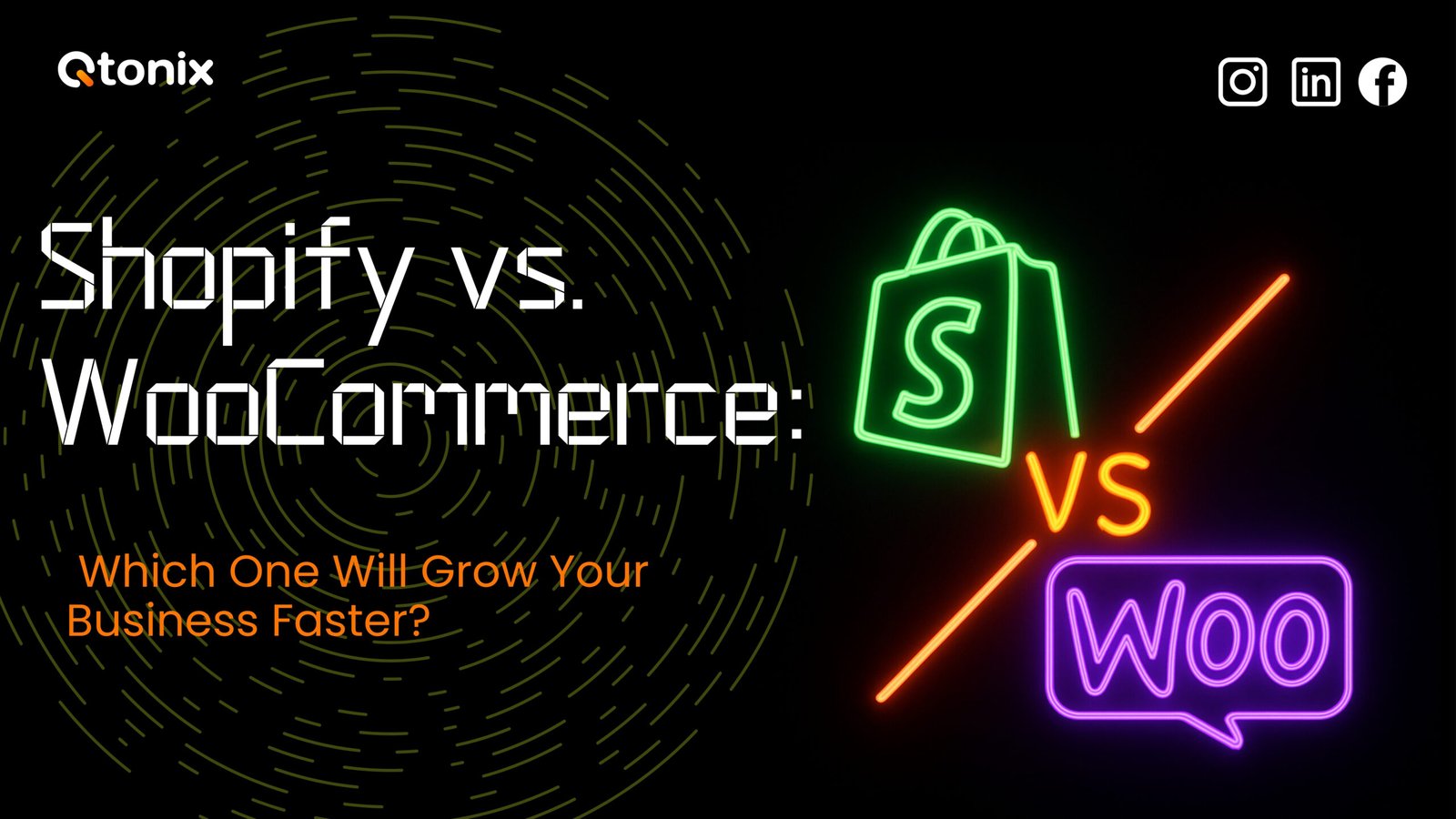Shopify vs. WooCommerce: Which One Will Grow Your Business Faster?

If you’ve ever considered launching your e-commerce business, you’ve probably also considered which tools you’ll need.
With many tools/platforms available today, you are likely familiar with two of the most popular ones – Shopify and WooCommerce.
Deciding whether to go with Shopify, or WordPress/WooCommerce is not an easy decision and causes a dilemma for first time business starters.
So, which one is the best for you?
We will break down Shopify and WooCommerce in a very simple way, so by the end of this blog you will know which one is the best fit for your business.
Let’s dive in.
A Summary:
- Shopify is an easy-to-use platform. It manages all tech staff for you with ease.
- WooCommerce is a free WordPress plugin. It requires more configuration and technical work.
- WooCommerce is easy to customize, while Shopify is a good choice for better support and quick setup.
- Both Shopify and WooCommerce allow you to dropship, by offering tools for data analytics and inventory management.
- The preference for an e-commerce platform relies on your requirements. WooCommerce is good for flexibility and Shopify is good for speed.
Shopify vs. WooCommerce: An Overview
Shopify is an all-in-one e-commerce platform. You won’t have to deal with web hosting, security, or irritating technical issues. Shopify does everything for you. It is designed to help you launch and run an online store with as little effort as possible. The platform is made to simplify the process of online store creation.
WooCommerce is a popular WordPress plugin. It’s easy to configure and helps turn a WordPress site into a feature-rich online store effortlessly. WooCommerce is open-source, which means you can create and customize it whenever you want. You need to focus on backups and updates while working with this plugin.
Let’s take a look at the differences between Shopify and WooCommerce to see which one can cater to your e-commerce needs.
| Feature | Shopify | WooCommerce |
| Costs | Shopify doesn’t have any hosting or security fees. But you may pay for themes or apps. | WooCommerce is free and it provides affordable addons. However, hosting and development fees are required. |
| Usability | Shopify offers security, hosting, and full-fledged website features. No coding required. | WooCommerce needs more complex setups. You have to do everything on your own. |
| Page Speed | 309 milliseconds | 776 milliseconds |
| Plugins and Apps | 13000+ apps | 900+ extensions and 59,000+ plugins |
| Design and Templates | 200+ appealing theme templates. | WooCommerce themes are customizable. You should have source code access. |
| SEO & blogs | Shopify helps create SEO-optimized websites. | As a WordPress plugin, WooCommerce provides the best SEO practices. |
| Payment Options | Shopify provides 100+ payment integrations. | WooCommerce offers 2 default payment options. |
Shopify Pricing
Shopify provides clear and concise monthly pricing plans. These plans cover basic store setup and hosting. Let’s have a closer look at the all Shopify plans:
| Pricing Plans | Subscription fee | Best for |
| Starter | $5/month | Small businesses or startups |
| Basic | $39/month | Growing startups or SMBs |
| Grow | $105/month | Growing businesses |
| Advanced | $399/month | Medium and large-scale businesses |
| Plus | $2,300/month | Large and enterprise-grade e-commerce stores |
WooCommerce Pricing
As a WordPress plug-in, WooCommerce is free. However, additional fees are required to unlock every feature. You should also buy web hosting, domain names, themes and plugins. Here is a quick WooCommerce cost estimation:
| Category | Items | Cost Range (USD) | Frequency |
| Domain & Hosting | Domain Name | $10 to $20 | Annually |
| Platform | WordPress Hosting | $5 to $35 | Monthly |
| Theme/Design | Custom Theme Design | $500 to $5,000+ | One-time |
| Plugins & Extensions | WooCommerce Plugin | $199 | Annually |
| Maintenance | Developer Support | $50 to $150 | Hourly |
| Transaction Costs | Processing Fees | 2% to 4% | Per order |
Which is Easy to Set up?
You are likely aiming to launch your e-commerce store quickly. Let’s explore how simple it is to get started with Shopify and WooCommerce.
1. Shopify: Easy and Straightforward
Shopify is built for ease of use. You can create your website with this tool very quickly. Once signed up, it guides you step-by-step through creating the store.
- Configuration: Don’t worry about any setup, security, and hosting! Shopify can manage everything for you.
- Customization: You can choose themes, add items, and manage your online store with simple clicks. No coding is required.
2. WooCommerce: Simple but Technicality Required
WooCommerce is easy to install, but you’ve to manage more details yourself or hire an expert. After WooCommerce installation, you need to focus on:
- Setup: You need to handle domain setup, hosting, SSL, and payment gateways.
- Customization: You can fully customize your store, but you may require coding skills and technical changes.
FAQs
It highly depends on your business objectives. If you’re seeking an e-commerce platform that’s easy to manage with less technical upkeep, Shopify might be a worthwhile upgrade.
If you’re just starting out, choosing Shopify can be ideal for you. It manages most of the store setup and technical work for you. We also suggest you consider your budget and business plans before making a choice.
Yes. WooCommerce and Shopify both allow you to use your custom domain name. With Shopify, you can purchase a domain or connect an existing one with ease. In contrast, WooCommerce requires you to manage domain management through your web hosting provider.
- Shopify: 24/7 customer support through phone, email, and chat.
- WooCommerce: Community forums, plugin developer support, and paid help from WordPress experts.
Written by Adam Gibbs
Adam is a skilled SEO content expert with a proven track record of crafting high-quality, keyword-rich content that drives traffic, engages readers, and ranks on search engines. With 10+ years of experience in digital marketing and content strategy, Adam specializes in creating blog posts, website copy, and marketing materials tailored to both audience needs and SEO best practices.
Related Posts
- All Posts
- SEO

Table of Contents Book Intro Call Case Studies Share: Related Guides: Related Posts Step-by-Step Tutorial: How to Share Google Tag...

Table of Contents Book Intro Call Case Studies Share: Related Guides: Related Posts Step-by-Step Tutorial: How to Share Google Tag...

Table of Contents Book Intro Call Case Studies Share: Related Guides: Related Posts Step-by-Step Tutorial: How to Share Google Tag...

Table of Contents Book Intro Call Case Studies Share: Related Guides: Related Posts Step-by-Step Tutorial: How to Share Google Tag...



